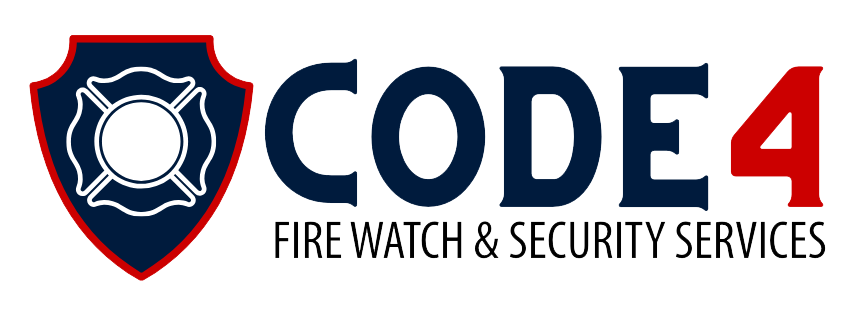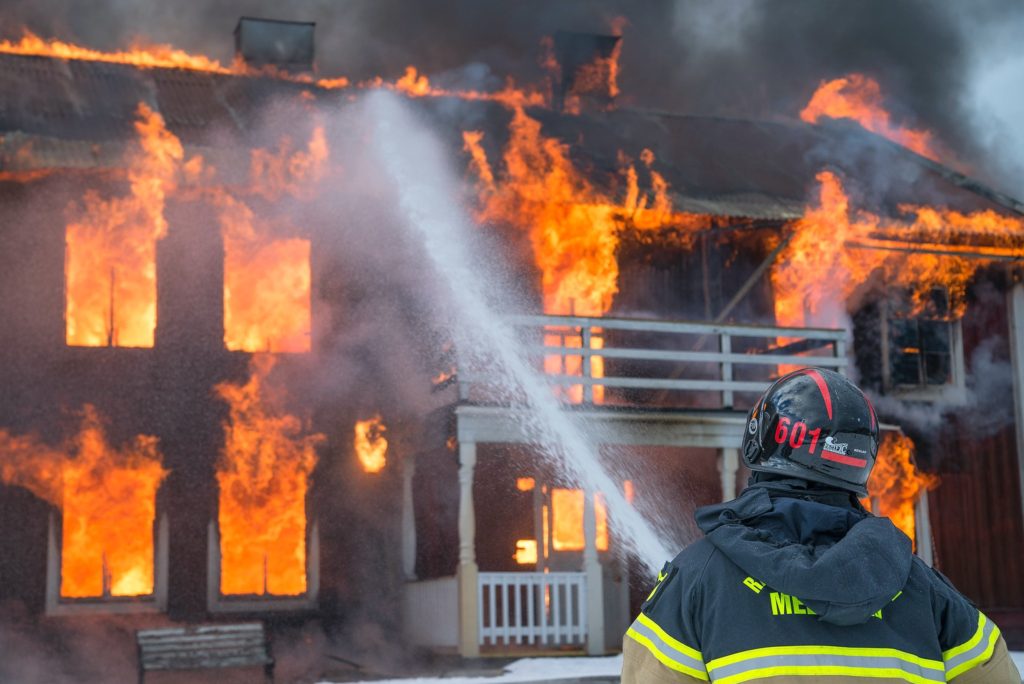Facing a fire emergency at home is the biggest fear for any homeowner. Household fires destroy or damage over 350,000 homes per year and result in about 2,600 deaths per year. Every homeowner should prepare for a fire emergency. Fires at home can start due to cooking accidents, electrical issues, lightning strikes, and many other factors. Keep your family safe by preparing for a fire emergency and having a plan on what to do during a fire at home.
Preventing Fire Emergencies at Home
Proactive measures to prevent fires are something every homeowner should take. If you have young children, make sure everyone understands what to do in an emergency.
Make a Plan
Discuss what to do during a fire at home with everyone who lives with you. A few things to consider:
1. Where do we meet? Have a designated meeting place safely away from the home. Make sure everyone knows where this is, so you know everyone is out of the house.
2. Understand 911 protocols. Teach your family how to properly call 911. Know the address of your home and any identifiers that will help the fire department locate you.
3. Understand the signals of a fire. By knowing fire indicators, like the beeping of smoke detectors, your family can understand when it is time to evacuate.
4. Protect valuable documents. Have a fireproof safe and make digital copies of important items. This includes items like passports, birth certificates, and other valuable documents. When there is a fire, do not try and take items with you. Everything is replaceable, except for your life. Make sure you are focused on the safety of yourself and your family.
Schedule a Rehearsal
Do a walkthrough with your family. Ask them what they would do if there was a fire in the hallway, kitchen, or any other location of the home. How are they going to get out? Where is the meeting spot for the family? If you have pets, how do you get them out safely without risking your own safety?
Two great things to teach your family about fires at home:
1. Stop, drop, and roll. The classic fire safety tip to keep yourself safe. If you or your clothing is on fire, this is the best way to save yourself.
2. Get low to the ground. Smoke rises as it is produced. If you are escaping your home and there is smoke present, get as low to the ground as possible. Try to cover your face with a wet cloth or piece of clothing to prevent smoke inhalation.
These are items you should address when practicing for a fire emergency at home.
Keep Exits Clear
Keep walkways and stairwells clear. Keeping your home clean isn’t just about cleanliness, it is about safety. If you have items blocking doors or stairwells, these can prevent you from quickly escaping. Remember, fires spread incredibly fast. The faster you can escape, the more likely you are to be safe.
If your home has a lot of clutter or unnecessary items, these can become fire hazards themselves. Having items like clothing, boxes, or miscellaneous items lying about, can act as fast-burning fuel for a fire. Keep your house clean and clear to protect yourself from a fire disaster.
Have an Escape Plan
Plan out what happens if your regular escape routes are blocked. If there is a fire in the hallway on the second floor, how do you get out? Consider having portable and compact fire escape ladders on the second floor. These will allow your family to escape through windows if exits are blocked by fire.
Test Smoke Alarms Regularly
Test smoke alarms and make sure they are working properly. If you have a smoke detector that has a low battery, replace it as soon as possible. Do not remove or deactivate smoke detectors, as they are a life-saving device. Smoke detectors should be tested once a month. Replace the batteries twice per year.
Responding to a Home Fire Emergency
Unfortunately, fires can happen at home. Here are some steps to take if you are faced with this dangerous situation.
Get Everyone Out of The House Safely
Evacuate the house and get to your safe meeting spot. Be sure that everyone has escaped from the home. If using a fire extinguisher to put out a fire, do not push the limits. Fire extinguishers are meant for small fires. If you cannot quickly put out the fire, get out of the house. You should still call 911, even if the fire is out.
Check the Doors
Before opening a door, make sure there is not a fire on the other side. Look for smoke coming through the door cracks. Also, test the doorknob with the back of your hand before opening it. This will prevent burning your hand severely. If the doorknob is hot, do not open the door and find another escape.
Call 911
Any time you have a fire at home, call 911. Provide them with your name, address, and the specific emergency you are facing. Even if you have a small fire, like a grease fire, call the fire department to confirm there are no hidden dangers.
If you are faced with a fire emergency at home, the main goal is to get everyone out of the house safely. The fire department will help take care of clearing the home. The next steps are reaching out to your homeowner’s insurance and mortgage company to notify them of the situation. If you need to stay in a hotel, save all your receipts to hopefully have those covered by insurance.
Code 4 Fire Watch – Protecting You from Fires
Code 4 Fire Watch provides fire watch services for businesses and hotels. Our team of trained experts understands how to respond to fire emergencies. If your business needs emergency or long-term fire watch services, call us any time of the day or night.

